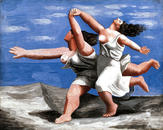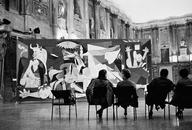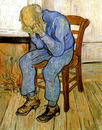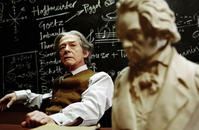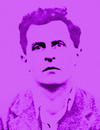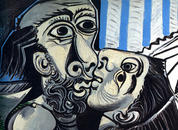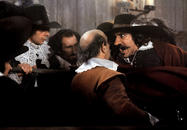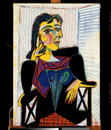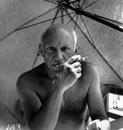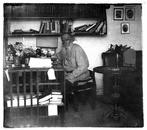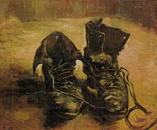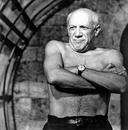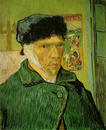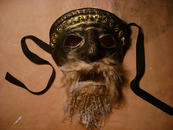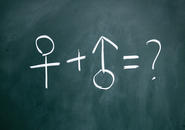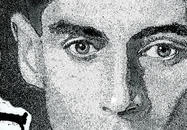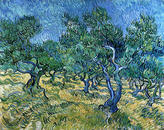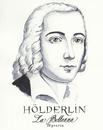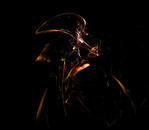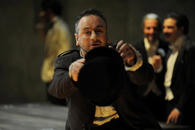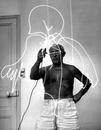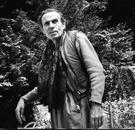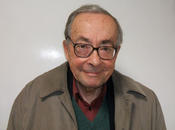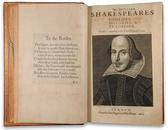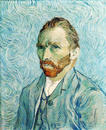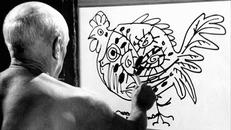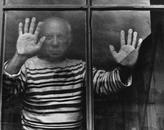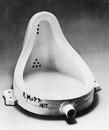Beyond the talent and genius: Dichter
A few hours after admiring the works of Picasso on display at the Palazzo Reale in Milan together with photographer Frederico Nero, a book that I thought I had lost for months was returned to the person that accompanied me to the exhibit. Walking through the rooms, noticing the amount of outstanding works on loan from the Picasso Museum in Paris, I kept thinking that the lost book would provide the key to better understanding my difficulties with the genius of Picasso and, more generally, the particular approach to art that always affects my judgment. The funny thing was that the day I looked at Picasso, always with stunned amazement, at the same time I thought of Shakespeare, trying to find the thread that binds the incongruous juxtaposition of two quite different artists to certain passages of that precious book I considered lost...
The book is No Passion Spent by George Steiner, a dazzling anthology of essays on literary criticism, philosophy of language and aesthetics. In the essay entitled 'A reading against Shakespeare' Steiner defines the parable of criticism that turned the Bard into a artist widely regarded as “not only unattainable, but with creative powers that rival those of Nature and Divinity, a superhuman power, a divine protector of mankind.” Steiner says that precisely for this reason any radical criticism of his work is now considered blasphemy, and as a consequence any serious and motivated opposition is virtually non-existent. Citing Tolstoy but especially Wittgenstein (two of the very few critics blinded by absolute consensus), trying to disassemble the unassailable uniformity of judgment made in the centuries around the genius of Stratford-upon-Avon, because, of course, he is still a genius full talent.
For Wittgenstein, his failure to appreciate Shakespeare depended on not knowing how to read him lightly, that is, from not knowing how to look at his work as you look at a beautiful landscape. He could only have astonished admiration, but would never know how to draw something from his work. “He has such an agile hand and such a personal stroke that each of his characters is significant, worthy of being seen. I understand how you can admire them and call it the most excellent art, but personally I do not like it (ich mag es nicht - with implicit reference to disgust).” Steiner asks if it is worth discussing the criticism of Wittgenstein, which at first seems arbitrary with his childish refusal (I do not like it). He comes to consider it valid, not so much due to the specifics of his arguments, but because it is based on this distinction, in his opinion one of the most exciting and fruitful: “Shakespeare was a creator of language, but not a poet” (vielleicht eher als ein ein Sprachshöpfer Dichter). Unfortunately, the word “poet” is not a proper translation of “Dichter", which is the real “gap or the chasm that forms the crux of the whole argument of Wittgenstein.”
For Dichter (the real poet) the formal virtuosity and originality of imagination are not enough to exhaust the meaning of his work. They are only a necessary instrument of communication of knowledge as a set of moral acts whose generative dynamic is that of a life-giving compassion. The knowledge of the poet and his criticism of life are therefore dependent on his ethical perception and the relative transmission (the artistic act itself) is not so much an act of aesthetics, but of morals, not a matter of artistic glory or a form of survival over time... a moral act, citing Canetti, “is the only one that justifies the art and literature.”
Steiner gives examples of other Dichter: Kafka, Sophocles, Hölderlin, Tolstoy and Celan. Take the blatant example of Van Gogh, who in painting a couple of banal boots worn by peasant is able to strum the strings of life-giving compassion and cause us to unconsciously enjoy the reflection of the fundamental questions of every truly poetic thought: “Why must there be the being, why shouldn’t their be nothing and why so much insecurity between being and nothingness?” The poet is an explicitly moral agent, a master (lost and in danger) of humanity lost and in danger.
Wittgenstein introduces the end of his critique a counter-presence that opposes that of Shakespeare, that is particularly attractive to me: “The great heart of Beethoven - no one could say the great heart of Shakespeare.” Excellent parallelism, I think. Our astonishment of Shakespeare clearly demonstrates that we are in contact not with a great human being but a phenomenon. The Missa Solemnis, the last quartets and piano sonatas of Beethoven are the overwhelming and deeply human incarnation of a fight. The music is that of the heart and awakens the heart and soul of the listener, who feels close to a brother tormented by doubt and infirmity, struggling with all his might. We do not find trace of such doubt, of the disease, the presence of this defiant struggle in Shakespeare. Shakespeare’s characters are a vortex of verbal energy that revolves around a void, an absence of truth and moral substance. Beethoven (and the Dichter) on the one hand, the agile hand that has created new forms of language on the other. A big heart, a great human being on the one hand, an enigmatic phenomenon on the other...
The question that Wittgenstein asks of Shakespeare, in the name of a compelling and tragic need, is then simply this: “Is language (the invention of language) sufficient to call someone a poet (Dichter)?” His answer is no.
And so, what does Picasso that to do with all of this? If in this essay I replace Shakespeare with Picasso, and possibly substitute some other little words ('characters' with 'figures', 'language' with 'signs', for example) I will have formed, in principle, my critique on the genius of Malaga. I wonder how much, in the formulation of these reviews, the biographies of Kafka, of Beethoven, Van Gogh, of Tolstoy, in contrast to that of Picasso (and the little we know about Shakespeare). But I believe it counts very little, otherwise I should deprecate Seneca, for example, and abhor Celine (artists who instead I love, the first; and I admire, the second). It is not this. I try to speak only of the work of the poet, what he is able to communicate to me.
With Picasso I always see everything, and in this sense I always see too much. But this is an insufficient critique of the highest degree, primarily because it is only quantitative. I see his impressive formal freedom, ease of creation, I understand that he is the artist who preceded everything and that all artists want to be him, or at least imitate him. I understand his amazing manual ability, his timing, both historical and for knowing to stop at the right time, in the composition of a work. I feel an unbridled imagination, huge formal courage...
But so we really feel Picasso fight? Do we perceive a human being who is fighting against something or someone? Do we feel that he conveys a message of life-giving compassion? Does he speak of being, of the essence? His work, however, is not a whirling dance, a wonderful vortex of energy that rotates around a vacuum in the absence of moral substance? I could go on for hours about the great heart that emerges from the works of Van Gogh, but the heart of those of Picasso?
And Guernica, the famous Guernica?
Yeah, Guernica: perhaps it is the reason for the misunderstanding Picasso, because I believe that precisely since then, the ostentation of Guernica, Picasso's greatness and that of his work abandoned forever the field of evaluation and has become a ‘singularity', that to say a law and a set of indisputable phenomena in their own right. Guernica however also explains how little the knowledge of this man’s life counts in my opinion. I studied this work as a young man, assuming that it was the apex of art of our time. That was how it was presented to me: the brilliant work of an exceptional man that showed he had fought hard against barbarism, showing it to the world with sublime courage. I analyzed the painting starting here, and I copied it. But copying it, I distinctly felt all its obvious decorative elements, its accuracy, unity and harmony of form. And finally it seemed absurd to represent a momentous drama of our time as the symbol of the struggle against the violence perpetrated by absolute Evil. The work gradually lost its credibility by virtue of its formal perfection. Of his ‘happiness and ease.' The tension, which of course was there, seemed to me only a very well thought out parody. It was a disappointment, but instead reflected on me and not the man from Andalusia. It reflected upon my inability to evaluate, because he was seen like this by all: the true artist of our time, praised in excelsis (and I still was not able to know the truth is not a matter of opinion of the majority or even unanimity).
Finally, I agree with Francesco Bonami when he says that the proof of the stature of Picasso the artist is the urgency with which he came out with his works. I fully agree, with the point of Bonami who unwittingly provides me the ultimate weapon to make me not love, and even to justify my judgments: “A true artist has urgency to make art to say something to himself or to the world. Picasso is the most excessive example of this urgency. Other artists who, despite their urgency, can’t produce as much: like when a man has to pee, but due to enlarged prostate, nothing comes out. Pee, or art, its one is the same, except that some people can get it out in one go, as with the Spanish phenomenon, while others produce droplets. Making art is like having sex. Some really enjoy it, while others pretend. Picasso truly enjoys it and if we are in front of his works, even without realizing it we enjoy a little too.”
His criticism really matters when dragging in the physiology of Bonami. It indirectly confirms my own critique, beyond the fact that we agree or disagree with what I have tried to express. Because my opinion and that of Bonami depend on various assumptions and expectations, by what we intend to try and find in the presence of art. In this sense, their criticisms are not comparable (and are both respectable) under quite different expectations and assumptions.
I briefly address these so-called assumptions and expectations starting with a metaphor of Bonami. One can be totally happy having sex based on only physiological-aesthetic principles. Just as you can feel completely unhappy having sex in the same way, because deprived of something that is considered decisive in the most intense physical expression for a man healthy, or being able to enjoy “life-giving compassion” and tracks of being, in addition to the physiological and aesthetic enjoyment. For Bonami to pee or have sex is therefore a matter of urgency and enjoyment (respectively assumption and waiting). For others, sex is much more than going pee - and maybe for these same “other,” having sex is less of an urgency than a "both a physical and moral need in terms of profound enjoyment." Both the assumption and the waiting in this case make things much more difficult, but certainly the expectation of enjoyment is enhanced with more incisive and fruitful aspects. And certainly more decisive and lasting.
But then, if Picasso for me is 'just' a phenomenal artist (a genius full of talent), who is the poet, the Dichter? It is the skilled artisan (of words, signs, notes...) that creates by hand and steady mind (then an artist of genius and talent) that can give a moral law and respect the limits of the possibility of his imperfect human nature sentenced to compromise, however, marked by the clumsiness of a man, by continual failures and omens of his nemesis. Marked, however, by the hope of giving and acknowledge once again the 'life-giving compassion', and marked by the greatness that only the incessant and selfless struggle can provide.
I also want to give a voice to a true poet, a Dichter, a living creature, eternal and majestic, who can say with a few memorable words what I am not able to say with many:
“What say you? It is useless? Ay, I know
But who fights ever hoping for success?
I fought for lost cause, and for fruitless quest!
You there, who are you! You are thousands!
Ah! I know you now, old enemies of mine!
Falsehood! Have at you! Ha! and Compromise!
Prejudice, Treachery!
Surrender, I? Parley? No, never! You too, Folly, you?
I know that you will lay me low at last;
Let be! Yet I fall fighting, fighting still!”
06/12/2012 Filippo Maglione

